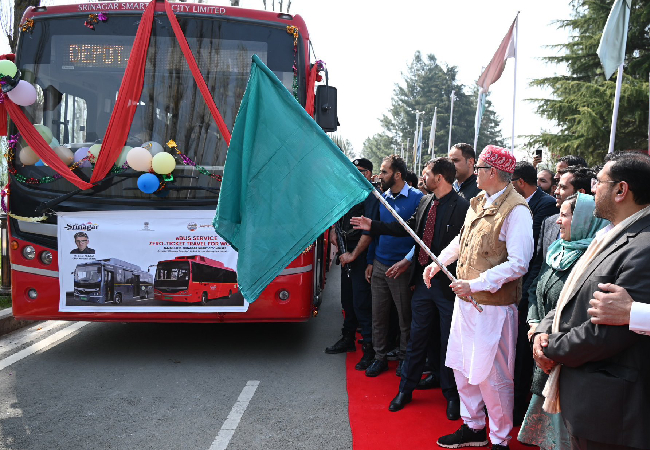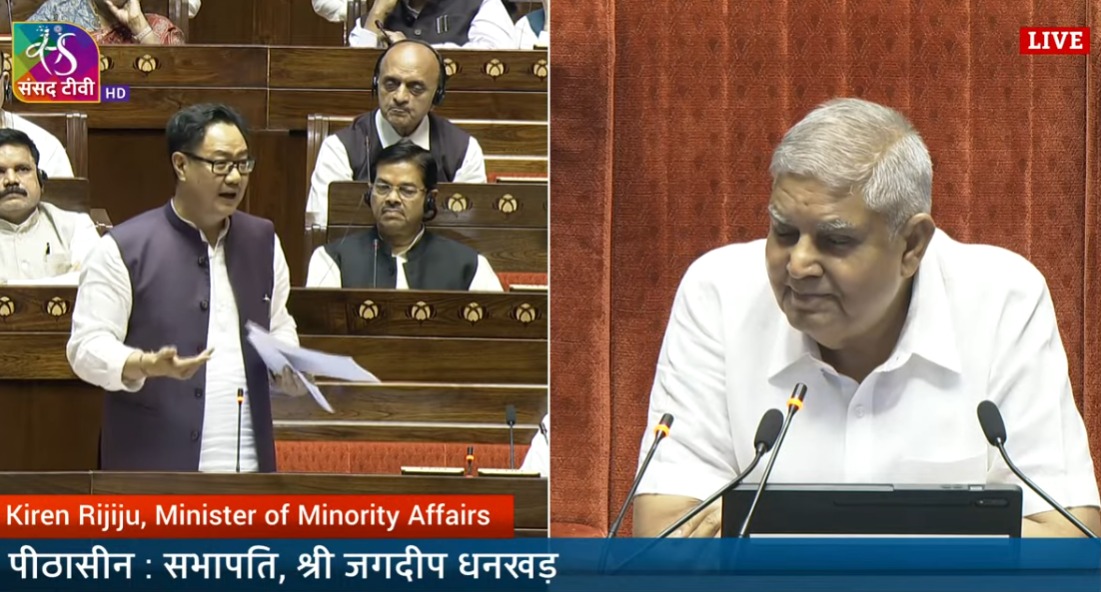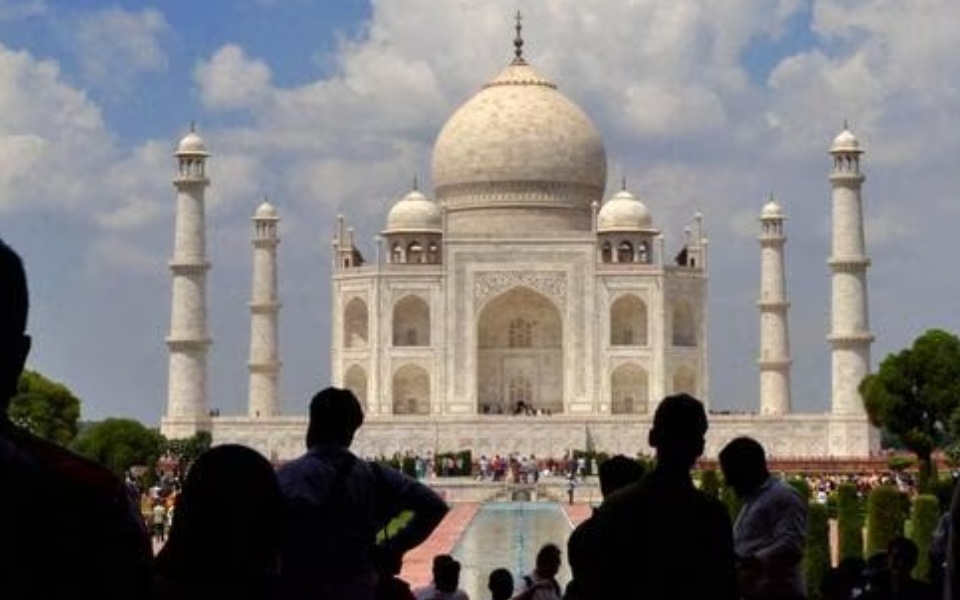Srinagar(PTI): Jammu and Kashmir Chief Minister Omar Abdullah launched free bus service for women in the Union Territory, at a function held at Sher-i-Kashmir International Conference Centre (SKICC) here on Tuesday.
Abdullah expressed hope that the move would make travel easy and comfortable for women.
The launch was also attended by ministers Satish Sharma and Sakina Itoo.
Free bus rides for women, a promise made in the National Conference's election manifesto, was announced in the recent budget presented by the chief minister.
"In the budget, we had made a special announcement that women will travel free of cost in SRTC (state road transport corporation) and Smart City buses from April 1. Today, we have launched the service with a hope that it will make their travel across Jammu and Kashmir easy and safe," Abdullah told reporters here.
He said the government will compensate the SRTC and Smart City buses for the zero-fare tickets.
"There will be no losses for the SRTC and Smart City buses. We will provide them compensation from the budget," Abdullah said.
In an X post, the chief minister said it was not just a welfare measure, but a commitment to women's empowerment and accessible mobility.
"Starting today, women across Jammu and Kashmir will travel free of cost in all Smart City and SRTC buses. This isn't just a welfare measure, it is a commitment to women's empowerment, accessible mobility, and a more inclusive J&K," he wrote.
Meanwhile, National Conference said the initiative paves way for women to move forward, both literally and figuratively.
"Enhancing mobility is key to greater opportunities, independence and progress. This initiative paves the way for women to move forward, both literally and figuratively," the NC wrote on its X handle.
Let the Truth be known. If you read VB and like VB, please be a VB Supporter and Help us deliver the Truth to one and all.
New Delhi (PTI): Parliament early Friday passed the contentious Waqf (Amendment) Bill, 2025, after it was approved by the Rajya Sabha.
The Lok Sabha had on Thursday approved the Bill after over a 12-hour debate.
In Rajya Sabha, the Bill got 128 votes in its favour and 95 against after all the amendments moved by the opposition were rejected.
In the lower house, the bill was supported by 288 MPs while 232 voted against it.
Participating in a debate in the Rajya Sabha, Minority Affairs Minister Kiren Rijiju said the Bill was brought with a number of amendments based on suggestions given by various stakeholders.
"The Waqf Board is a statutory body. All government bodies should be secular," the minister said, explaining the inclusion of non-Muslims on the board.
He, however, said the number of non-Muslims has been restricted to only four out of 22.
Rijiju also alleged that the Congress and other opposition parties, and not the BJP, were trying to scare Muslims with the Waqf Bill.
"You (opposition) are pushing Muslims out of the mainstream," he added.
He said for 60 years, the Congress and others ruled the country, but did not do much for Muslims and the community continues to live in poverty.
"Muslims are poor, who is responsible? You (Congress) are. Modi is now leading the government to uplift them," the minister said.
According to the Waqf (Amendment) Bill, Waqf tribunals will be strengthened, a structured selection process will be maintained, and a tenure will be fixed to ensure efficient dispute resolution.
As per the Bill, while Waqf institutions' mandatory contribution to Waqf boards is reduced from 7 per cent to 5 per cent, Waqf institutions earning over Rs 1 lakh will undergo audits by state-sponsored auditors.
A centralised portal will automate Waqf property management, improving efficiency and transparency.
The Bill proposes that practising Muslims (for at least five years) can dedicate their property to the Waqf, restoring pre-2013 rules.
It stipulates that women must receive their inheritance before the Waqf declaration, with special provisions for widows, divorced women and orphans.
The Bill proposes that an officer above the rank of collector investigate government properties claimed as Waqf.
It also proposes that non-Muslim members be included in the central and state Waqf boards for inclusivity.





